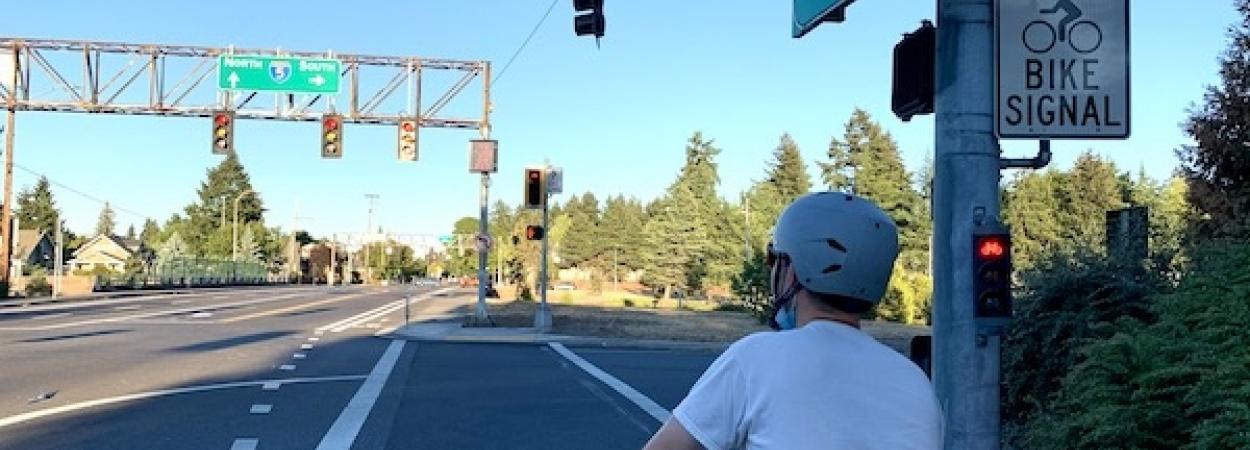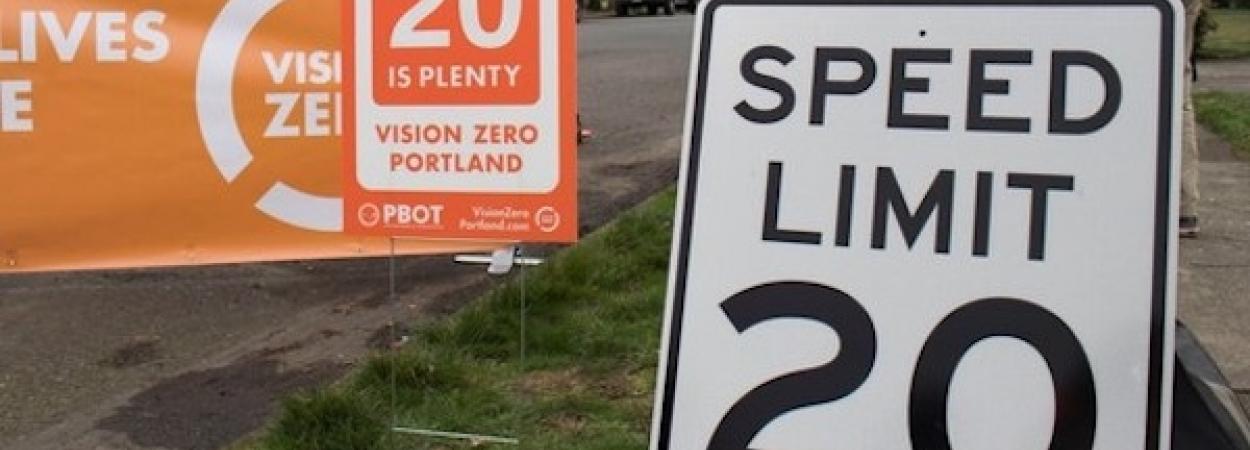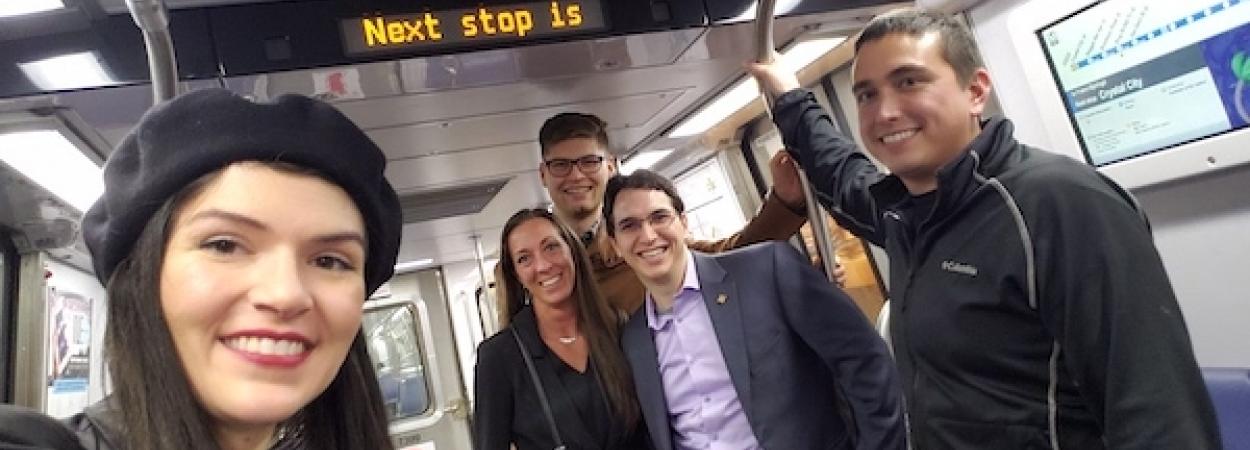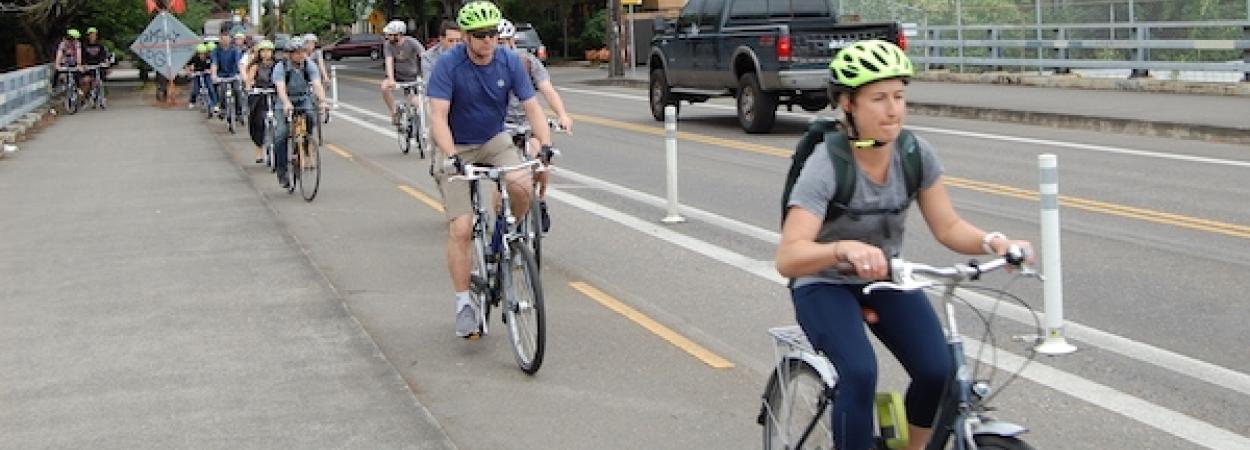 |  |  |

Sponsor: National Cooperative Highway Research Program (NCHRP)
Research Team Lead: Christina Fink, Toole Design Group
Portland State Investigators: Christopher Monsere, Nathan McNeil and Sirisha Kothuri
One of the most common locations for motor vehicle-bicyclist crashes is at controlled intersections. Particularly dangerous is the conflict between through bicyclists and turning drivers (either left or right). Despite widespread acknowledgement of this problem, transportation engineers and planners still lack definitive guidance on how to safely and effectively design for…
Read More
Photo by Portland Bureau of Transportation
Christopher Monsere, Sirisha Kothuri, and Jason Anderson; Portland State University

Hau Hagedorn, the associate director of Portland State University's Transportation Research and Education Center and the National Institute for Transportation and Communities, has been selected by the Council of University Transportation Centers (CUTC) and the American Road & Transportation Builders Association (ARTBA) to win the 2020 CUTC-ARTBA Award for Administrative Leadership.
Hau is responsible for the day-to-day management, operations and overall direction of TREC and NITC's peer-reviewed research and technology transfer programs. She also oversees programming and delivery of professional development workshops through the Initiative for Bicycle and Pedestrian Innovation program at PSU. An active participant in national efforts on conducting and implementing research, she serves as co-Chair of both the TRB Condu…
Read More
The 100th annual meeting of the Transportation Research Board (TRB) is coming up next month. Normally held in Washington, D.C., this year's meeting will be virtual and will take place from January 5–29. Transportation Research and Education Center (TREC) researchers will have strong representation in the online conference: 23 Portland State University faculty, staff and students are presenting their expertise at TRB 2021!
VIEW THE ONLINE GUIDE TO PSU AT TRB 2021
DOWNLOAD THE PSU PRESENTATION FILES
Monday, Jan 25, 11:30 AM - 1:00 PM, Driver Yielding and Pedestrian P…
Read More
Subcontract: NCHRP 15-74 Safety Evaluation of On-Street Bicycle Facility Design Features
Sponsor: National Cooperative Highway Research Program (NCHRP)
Research Team Lead: Dr. Bahar Dadashova, Texas A&M Transportation Institute
Investigators: Christopher Monsere, Sirisha Kothuri and Nathan McNeil of Portland State University; and Toole Design Group
In recent years, there have been over 600 bicyclist fatalities annually in the United States. This sobering statistic has motivated a number of recent studies, including the recently released National Transportation Safety Board study, “…
Read More